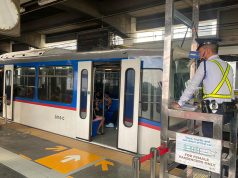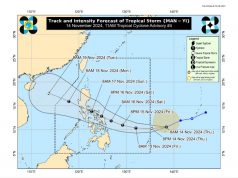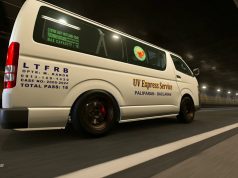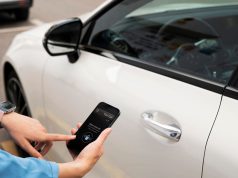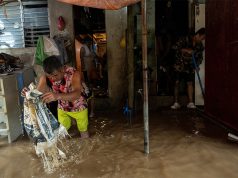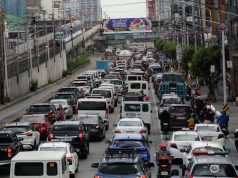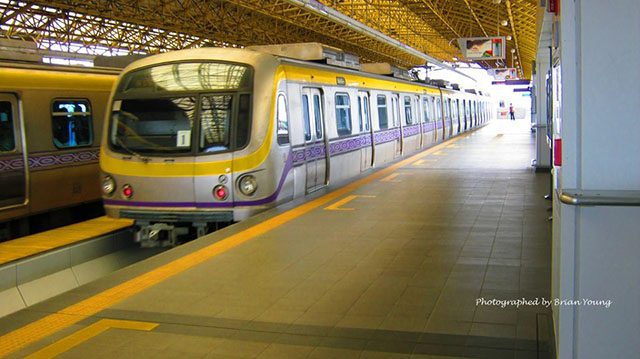
The Light Rail Transit System Line 2 (LRT-2) responded to accusations of allowing someone with gallons of water to board the train despite the ban on bottled drinks and other liquid materials.
A commuter on January 31, Thursday posted a picture of an individual leaning near the door of a train with two water containers by his side.
The commuter recalled the liquid ban imposed by the management and tagged its official account on Twitter within the post’s thread.
BAWAL YUNG BAON KONG TUBIG SA LRT PERO PUTANGINA NAKAPASOK 'TO ???!!! pic.twitter.com/VD4cNTMDhN
— thank you, jin (@elyxxv) January 31, 2019
The LRT-2 account replied that the man in the picture is their utility personnel whose duty was to hand out the gallons of water from their authorized distributor to the satellite office of LRT-2’s Station Operation Division.
Their satellite office is located at Betty-Go Belmonte Station.
1/2 CLARIFICATION: The man on the picture in this thread is LRTA's utility personnel. The gallons of water are being delivered by our authorized distributor at Betty-Go Belmonte station (satellite office of Station Operations Division) every Tuesday. https://t.co/XJvkPjLu27
— LRT2 (@OfficialLRTA) February 4, 2019
The train management noted that the water containers were screened as part of a standard operating procedure.
2/2 Train is used as it is a faster mode of transportation. Rest assured that before this water was allowed to enter, it followed the SOP with regards to the delivery and acceptance of water gallons in our stations.
— LRT2 (@OfficialLRTA) February 4, 2019
While the water containers can be transported via automobile, they reasoned that a train ride is the quickest way to deliver the water containers needed by their own personnel.
Liquid ban on trains
The Department of Transportation, following a directive from the Philippine National Police, temporarily banned the bringing of bottled drinks and other liquid containers to train stations on January 31, Thursday.
Bottled drinks, tumblers with liquids, alcohols, hand sanitizers and solutions to contact lenses are some of those that are prohibited from being carried by passengers.
There is no certainty as to when the ban will be lifted. However, authorities have advised passengers to empty their tumblers before entering stations to prevent it from being thrown by security.
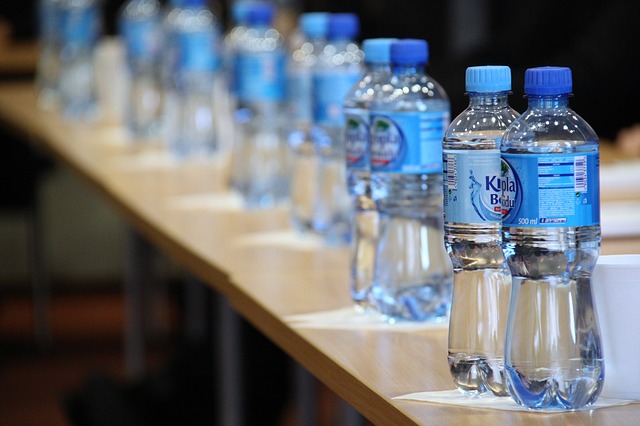
Usually, a liquid ban is implemented in airports—particularly those with international flights—as preventive measures against liquid bombs or liquid-based explosive devices.
The same reason was cited by the Metro Rail Transit (MRT-3) in banning liquids for the meantime.
“We advise our commuters not to bring bottled drinks, and liquids inside MRT-3 stations as these can be used as ‘liquid bombs,'” they said in a statement.
National Capital Region Police Office chief Director Guillermo Eleazar added that bottled drinks and other liquid containers may contain harmful chemicals which can be used to endanger passengers’ lives.
“Meron kasing ibang mga liquid items na puwede itong mga chemicals na maaaring harmful sa ibang mga kasamahan natin para mag-cause ng harm sa sa iba,” he shared in an interview.
The liquid ban on trains came in light of recent deadly bombings in the country’s south.
Last January 27, Sunday, the Our Lady of Mount Carmel Cathedral in Jolo, Sulu suffered two bombings that have resulted in the death of 27 people
On January 28, Monday, a roadside explosion occurred in North Cotabato while a mosque in Zamboanga was destroyed with grenade attacks on January 29, Tuesday.




